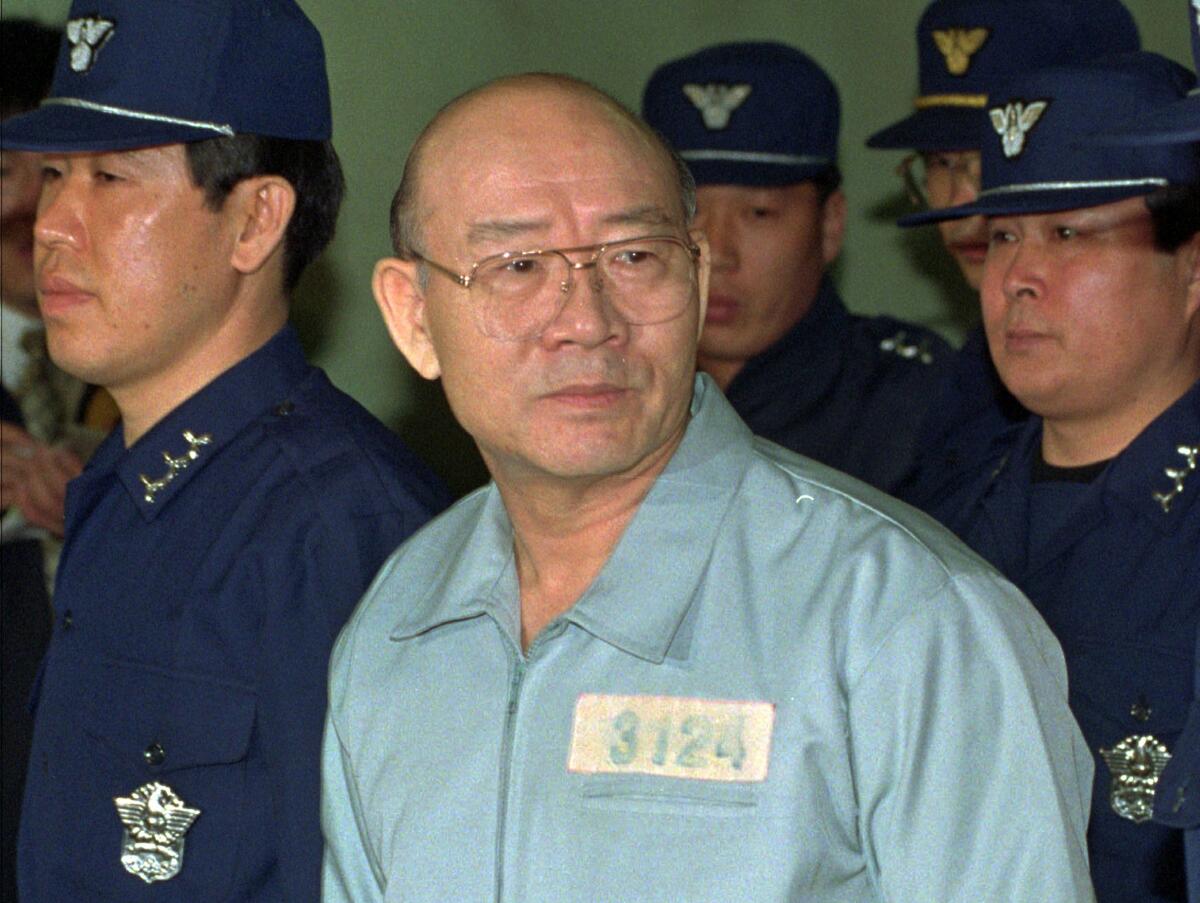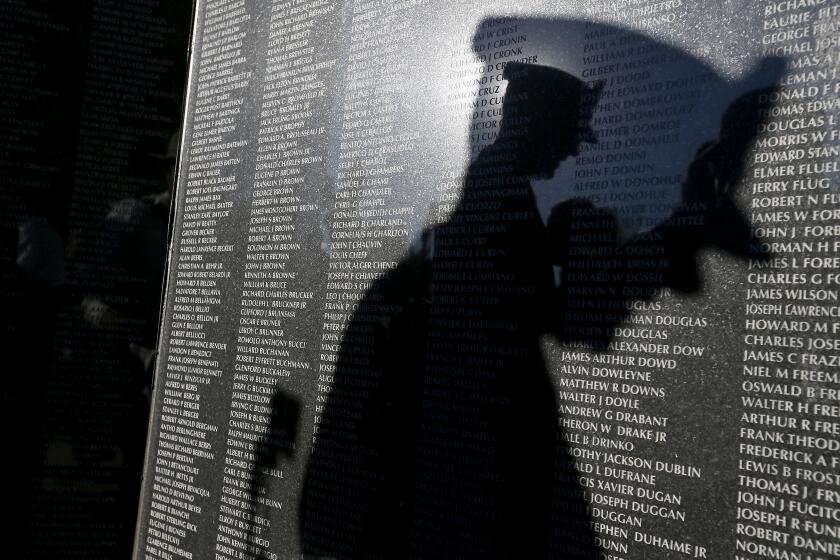Chun Doo-hwan dies; ex-dictator crushed pro-democracy demonstrations in South Korea

SEOUL — Chun Doo-hwan, a one-time authoritarian ruler of South Korea who came to power in a military coup and oversaw a brutal crackdown on democratic protesters during his reign in the 1980s, died Tuesday. He was 90.
The former dictator’s legacy is shaped as much by the ruthlessness of his actions as by his unapologetic denials and lack of of regret long after the country became a thriving democracy. In the mid-1990s, he was prosecuted and sentenced to death for his bloody military repression. Chun was later pardoned.
Chun, who was diagnosed earlier this year with multiple myeloma, collapsed in his Seoul home early Tuesday, according to his former spokesman. At the time of his death, he still owed more than $80 million in restitution that prosecutors have said were the ill-gotten proceeds of corruption. He refused to pay, claiming at one point that he had just 291,000 won — less than $250 — to his name, but prosecutors have continued to pursue his assets, including some hidden in the U.S.
For many South Koreans, Chun remains a defiant emblem of a painful chapter of the country’s modern history. He was part of a military junta that seized control of the country in 1961 under army Gen. Park Chung-hee, and served in key roles during Park’s two-decade dictatorship until his assassination in 1979. After Park’s death, Chun took control of the military, declared martial law and assumed the presidency.
The years under Park and Chun were also a time of meteoric economic growth and industrialization for South Korea, the country’s industry thriving and exports increasing. At the same time, under their authoritarian rule, dissidents and student activists calling for democratic reforms were kidnapped, tortured or disappeared.
The memorial is the first to include the names of the more than 30,000 Americans who died in what is sometimes called the “forgotten war.”
His most enduring notoriety is for the military’s violent suppression of a civilian uprising in the city of Gwangju in May 1980. Troops under his command opened fire on protesters, many of them students, killing hundreds. The U.S.’ lack of intervention and tacit approval of Chun’s rule set off a wave of anti-American sentiment and protests, which continues to reverberate .
“His rule was marked more by illegality and violence than any other president,” said Choi Jin, who runs the Seoul-based Institute of Presidential Leadership and reported on the civilian deaths in Gwangju as a journalist in the late 1980s. “To his last days, there wasn’t a personal apology, much less a political one. There were so many casualties, but not even an expression of regret.”

Chun was born in 1931 in Hapcheon, in the southeast of the Korean Peninsula, to a poor but educated family. He graduated from the Korea Military Academy and later spent a year in American military schools as a young officer.
During Park’s reign, he was intimately involved in the dictator’s security and created a small group of fellow military academy graduates that later helped him usurp power.
In May 1980, months into his dictatorship , Chun declared full martial law, arrested opposition figures and student leaders and shut down the National Assembly. Protests demanding free elections and an end to authoritarian rule cropped up around the country; in Gwangju, the home province of respected opposition leader Kim Dae-jung, who would later become president and a Nobel Peace Prize laureate, the measures ignited passionate protests that broke out in a central square. Military special forces laid siege to the city and swept in, opening fire on citizens in a bloody crackdown.
Analysts say the ratcheting up of military might between North and South Korea raises the possibility of misunderstandings that could spiral to dangerous consequences.
Despite the repression, street demonstrations and student activism calling for democracy continued to mount throughout Chun’s years in power. In 1987, after his announcement of indirect elections for his hand-picked successor touched off widespread and vigorous protests, Chun acquiesced and allowed direct elections, marking a watershed turn in South Korea’s path to democracy.
In 1995, he was indicted on charges relating to the coup, the killings in Gwangju and bribery, along with Roh Tae-woo, a former military general who also took part in the coup and won the popular vote in 1987 to succeed Chun as president. Chun’s eventual death sentence was reduced to life in prison, and later he was pardoned.
Despite his conviction before the country’s highest court, Chun maintained into his final years that the crackdown in Gwangju was a legitimate military operation and that he did not order indiscriminate killings. He wrote a three-part memoir with such denials in 2017, and was prosecuted for defamation for refuting a late priest’s statement that protesters were fired upon from a helicopter. He was found guilty but received a suspended sentence.
His public stance stood in contrast to that of Roh, who largely remained out of public view and paid his respects to those killed in Gwangju through his son. Roh died in October.
“Through continued lies and distortions, Chun has deluded the Korean people and legal system, insulting and disparaging the dead with his memoir rather than remorse or apology,” an association of those who lost family members in Gwangju said in a statement Tuesday. “He’s consistently offered only pathetic excuses and evaded responsibility.”
Chun is survived by his wife, three sons and a daughter.
More to Read
Sign up for Essential California
The most important California stories and recommendations in your inbox every morning.
You may occasionally receive promotional content from the Los Angeles Times.












